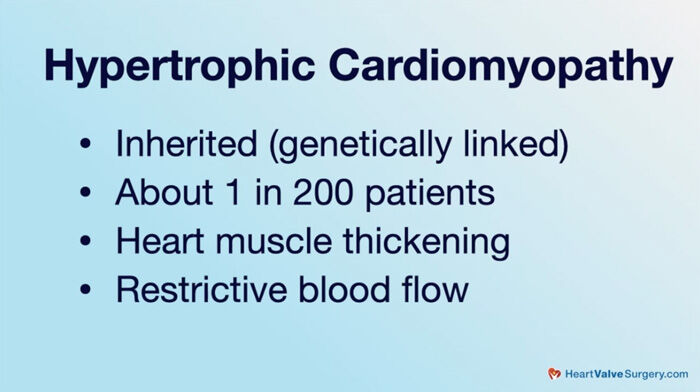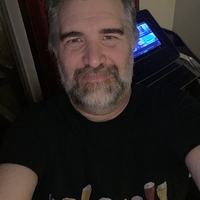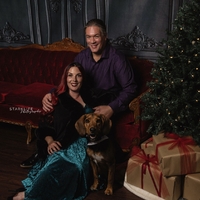Hypertrophic Cardiomyopathy & Heart Valve Disease: What Should Patients Know?
Written By: Adam Pick, Patient Advocate & Author
Medical Expert: Dr. Pietro Bajona, Cardiac Surgeon
Page last updated: October 17, 2023
Hypertrophic cardiomyopathy is a unique and misdiagnosed form of heart disease that can be associated with different types of valvular disorders.
To learn more, we interviewed Dr. Pietro Bajona, a cardiac surgeon that specializes in hypertrophic cardiomyopathy and heart valve disease. During his career, Dr. Bajona has performed over 2,000 cardiac procedures of which more than 500 operations involved heart valve repair or replacement therapies.
Key Facts About Hypertrophic Cardiomyopathy
Dr. Bajona shared several important facts and advice specific to hypertrophic cardiomyopathy. Here are the key learnings from this interview:
- Dr. Bajona’s passion for cardiac surgery began when he was eight years old. After reading a story about a heart transplant operation in Life Magazine, Dr. Bajona knew he wanted to be a cardiac surgeon.
- Hypertrophic cardiomyopathy is an inherited (genetic) condition in which the heart muscle thickens. The thickening of the heart, specifically the left ventricle, impedes blood-flow out of the heart which can cause symptoms. Hypertrophic cardiomyopathy impacts about 1 in 200 people in the general population.

- Symptoms of hypertrophic cardiomyopathy are variable. The main symptom is shortness of breath. Other symptoms include light headiness, fatigue, passing out (syncope), arrhythmia and a fast heart rate.
- A common misdiagnosis is that patients with sleep apnea and asthma actually have hypertrophic cardiomyopathy.
- An echocardiogram is the gold standard for diagnosing hypertrophic cardiomyopathy.
- Hypertrophic is treated regularly and successfully. According to Dr. Bajona, the key pathway to a successful treatment is to find a medical team that specializes in this disease.
- Treatments for hypertrophic cardiomyopathy include medications, septal reductions (including septal ablation and septal myectomy).
- Heart valve disease and hypertrophic cardiomyopathy are related. Patients with aortic stenosis and mitral regurgitation are often referred to Dr. Bajona. In many of these cases, however, the real problem is the left ventricle thickening and not the patient’s heart valve. That said, some patients with hypertrophic cardiomyopathy may need heart valve therapy (more commonly for the mitral valve).
- Hypertrophic cardiomyopathy does not specifically cause heart valve disease. But, it can cause secondary regurgitation due to the thickening of the left ventricle. As chronic mitral regurgitation can cause the atrium to enlarge, patients may also suffer from atrial fibrillation as a result of hypertrophic cardiomyopathy.
- Dr. Bajona’s advice for patients is to (i) get informed about hypertrophic cardiomyopathy and (ii) find a cardiac center with a team of specialized and passionate physicians to help you.
Many Thanks to Dr. Bajona!
On behalf of our entire patient community, many thanks to Dr. Bajona for sharing his clinical experience and research with our community!
Related Links:
Keep on tickin!
Adam
P.S. For the hearing impaired members of our community, I have provided a written transcript of my video interview with Dr. Bajona below.
Video Transcript:
Adam: Hi, everybody, it’s Adam with heartvalvesurgery.com, and this is a very important surgeon question-and-answer session all about hypertrophic cardiomyopathy. I am thrilled to be joined by Dr. Pietro Bajona. During this fantastic career, Dr. Bajona has performed over 2,000 cardiac procedures, of which many involved some form of heart valve repair or heart valve replacement. Dr. Bajona, you and I have known each other for many, many years. Thanks so much for being with us today.
Dr. Bajona: Well, thank you, Adam. This is great. Thank you for having – giving me this opportunity. It’s great to be here and talk about hypertrophic cardiomyopathy with heartvalvesurgery.com community.
Adam: Yeah, so we’re going to talk all about hypertrophic cardiomyopathy, and I’m thrilled to learn what you’re doing. To get started, Dr. Bajona, why did you want to become a cardiac surgeon?
Dr. Bajona: This is a great question, and I actually wanted to be a heart surgeon since I was a little kid. I was probably around 8 or 9 years old. I remember my father having this Life magazine that was talking about the first heart transplant, and since then that’s the only thing I wanted to be.
Adam: Dr. Bajona, I love hearing that story. Now let’s dive right into hypertrophic cardiomyopathy. Can you help the patients out there understand what is it, and is it common?
Dr. Bajona: Well, Adam, hypertrophic cardiomyopathy is generally an inherited condition, so generally genetically linked, with an incident in general population, we know now around 1 in 200 patients. It’s a condition basically brings the muscle inside of the heart thicken, and this thickening is impeding the blood flow outside of the heart. Hence, the patients become symptomatic.
Adam: Dr. Bajona, thanks for that explanation. Now, maybe we can backtrack real quick. What are the symptoms and maybe the potential risks of hypertrophic cardiomyopathy?
Dr. Bajona: Symptoms are very variable. The most common one, Adam, is shortness of breath. That can be anything in our life, but most commonly it’s that. Then we have a vast array of symptoms. That can be light-headedness, being fatigued, passing out, syncope, arrhythmias, fast heart rate. Patients come to us and well, for the most part, tell me, “Doctor, I can’t do any more what I was able to do six months ago. I used to play tennis and now I can’t do it.”
Adam: Dr. Bajona, those symptoms seem like symptoms of many other cardiac disorders, and I’ve got to ask you, are there any misconceptions about hypertrophic cardiomyopathy?
Dr. Bajona: I’m glad you asked this question because it’s way more common than you think. Patients, many times, are diagnosed with either sleep apnea or asthma, but there’s nothing wrong with their lungs. The causes of these symptoms is a heart condition. As I said, this is very common. For the most part, all you need is just an echocardiogram to actually get rid of this misconception and guide you to the right treatment.
Adam: I’m glad to hear the echo can pick this up quickly, Dr. Bajona, and I’ve got a now follow-on with the question about treatment that you alluded to. Is hypertrophic cardiomyopathy treated regularly, and what are the outcomes?
Dr. Bajona: Hypertrophic cardiomyopathy is treated successfully all around the world. The key point to a successful treatment is to see a physician who specializes in treating hypertrophic cardiomyopathy and the vast majority of the cases with hypertrophic cardiomyopathy are treated successfully with medication alone. For – there’s around 20 to 30% of patients where medications are not enough. Then we will start to think about septal reduction therapies. Mainly there is two septal reduction therapies nowadays available. One is septal ablation that is performed by interventional cardiologists. One is a septal myectomy, which is a more invasive procedure and is done by heart surgeons.
Adam: Dr. Bajona, I love hearing there are multiple paths to treating hypertrophic cardiomyopathy and I’m sure the patients are wondering is can one or both of these treatments help reduce or eliminate symptoms and risks?
Dr. Bajona: Yes, and that’s why I like treating hypertrophic cardiomyopathy patients, because it’s very, very rewarding. When the patients get treated by a team of dedicated physicians who are expert in hypertrophic cardiomyopathy, they actually get treated successfully. In some cases, some patients who are going through surgery or septal reduction therapies, they can have a consistent and very significant reduction in their symptoms. Most of the cases also completely not going to back normal life.
Adam: That is great to hear, Dr. Bajona, and I’ve got to ask you a question, which I’m sure a lot of patients watching this video are thinking themselves. Why at heartvalvesurgery.com are we having this discussion about hypertrophic cardiomyopathy? Are the two cardiac diseases related and if so, how?
Dr. Bajona: Yes, they are interrelated, and many times we see patients with hypertrophic cardiomyopathy and they are sent to us with a diagnosis or either severe mitral regurgitation or severe aortic stenosis. Many patients with hypertrophic – with obstructive hypertrophic cardiomyopathy have mitral regurgitation, but most of these cases, the problem is not the mitral valve itself but is the ventricle who’s ticking. So we need to focus on the ventricle and not on the mitral valve. Few of these patients will need some mitral valve treatment, but the vast majority will not.
Adam: Does hypertrophic cardiomyopathy cause any type of valve disease?
Dr. Bajona: Hypertrophic cardiomyopathy, per se, does not cause valve disease, but it can cause regurgitation secondary to the thickening of the heart as we were mentioning before. Many patients come to our attention when they – with severe mitral regurgitation because the mitral valve is distorted and is leaking. As we know, chronic, severe mitral regurgitation increases the size of the left atrium and many patients get diagnosed and referred to us when they actually come with atrial fibrillation and they’re quite symptomatic.
Adam: Dr. Bajona, we are learning a lot today. Thanks so much. Now I’ve got to ask you a question: What is your best or top pieces of advice for patients out there?
Dr. Bajona: Well, Adam, usually I have two advices for my patients. My first advice is to get informed. Read, study everything that you can about your condition. The more you know about your condition, the less care you are and the more you are in condition to make the right decision for you. The second advice is if you need treatment for hypertrophic cardiomyopathy, you need to go to centers where there is a team that are dedicated and passionate, and they’re able to take care of yourself in the best way possible.
Adam: Dr. Bajona, I cannot thank you enough for taking time away from your very busy practice to share these wonderful insights about hypertrophic cardiomyopathy. Thanks for being with us today.
Dr. Bajona: Well, Adam, thank you very much, again, for the invitation. It was great to talk about hypertrophic cardiomyopathy. I hope patients will have a lot of questions. I’m happy to answer at any time and as you say all the time, keep on ticking.
Adam: Thanks so much. You took the words right out of my mouth, Dr. Bajona. Keep on ticking. Thank you.





